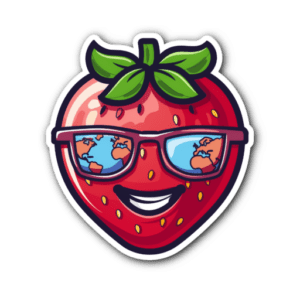Exploring literature while learning a language is a delightful journey. Classic novels like 'Pride and Prejudice' and 'Don Quixote' offer cultural insights and language nuances. Immerse yourself in modern fiction with 'Normal People' for contemporary vocabularies. Poetry collections such as 'Milk and Honey' bring rhythmic melodies that enhance fluency. Short stories provide language immersion in manageable narratives. Non-fiction books offer practical skills, while children's literature simplifies language learning. Sci-fi and historical fiction expand vocabulary and showcase linguistic creativity. Each genre provides a unique doorway into language mastery, promising rich experiences worth your time.
Classic Novels for Language Enrichment
Interested in expanding your language skills through literature? Language immersion through literary classics is a fantastic way to deepen your understanding and fluency in a new language. Classic novels offer a unique insight into the cultural nuances and linguistic intricacies of a language, making them invaluable resources for language learners.
Immersing yourself in timeless literary works such as 'Pride and Prejudice' by Jane Austen, 'Don Quixote' by Miguel de Cervantes, or 'Les Misérables' by Victor Hugo can greatly enhance your vocabulary, grammar, and overall language comprehension. These masterpieces not only provide a rich tapestry of words and phrases but also offer valuable insights into the historical contexts and societal norms of the language you're learning.
Modern Fiction for Contemporary Language
When it comes to modern fiction for contemporary language learners, there's a wealth of popular literature by diverse authors waiting to be explored.
From gripping thrillers to heartwarming romances, these books offer a fresh perspective on language usage and storytelling.
Engaging with these modern works can't only improve language skills but also provide insight into current cultural trends and societal issues.
Popular Modern Fiction
Exploring the world of popular modern fiction can greatly enhance one's grasp of contemporary language nuances and storytelling styles. Language immersion is key when delving into works by authors like Haruki Murakami or Chimamanda Ngozi Adichie. These books not only offer a window into diverse cultures but also present relatable characters facing modern-day challenges.
For language learners seeking to connect with the present moment, novels such as 'Normal People' by Sally Rooney or 'Where the Crawdads Sing' by Delia Owens provide a rich tapestry of language that mirrors current dialogue and societal norms. By immersing oneself in these popular modern fiction works, learners can absorb colloquial expressions and contemporary vocabularies in a natural and engaging way.
Diverse Contemporary Authors
Surveying the landscape of diverse contemporary authors in modern fiction reveals a rich tapestry of linguistic diversity and cultural narratives waiting to be explored.
Cultural diversity and contemporary settings come alive through the works of authors who provide a unique lens into different worlds. Through language immersion, readers can explore the intricacies of diverse perspectives, gaining a deeper understanding of varied cultures and experiences.
These authors offer more than just stories; they offer a gateway to new ways of thinking, feeling, and being. By engaging with their works, language learners can't only enhance their language skills but also broaden their horizons through the exploration of rich, multifaceted narratives set in the modern world.
Poetry Collections for Language Beauty
Indulge in the rhythmic melodies and profound insights found in select poetry collections that capture the essence of language beauty. Poetry is a powerful tool for exploring language beauty and delving into deep meanings through carefully crafted words. For those looking to appreciate the art of poetry while enhancing their language fluidity, there are several collections that stand out.
One recommendation is 'Milk and Honey' by Rupi Kaur, a collection that beautifully intertwines themes of love, loss, and healing. Kaur's simple yet impactful style resonates with readers seeking emotional depth in their language journey. Another compelling choice is 'The Sun and Her Flowers,' also by Kaur, which continues to explore themes of growth and resilience.
If you're drawn to classic poetry, 'The Waste Land' by T.S. Eliot is a masterpiece that challenges readers with its intricate layers of meaning and rich language. This collection is perfect for those looking to enhance their language skills while appreciating the beauty of poetic expression.
Short Stories for Bite-Sized Language Practice
Delving into short stories for bite-sized language practice offers a dynamic way to hone linguistic skills efficiently. These compact narratives provide a perfect opportunity for language immersion, allowing learners to engage with the text more deeply and develop a better understanding of the language in context.
Short stories are ideal for quick language practice sessions, fitting into busy schedules while still offering valuable learning experiences. They're also great for literary analysis, enabling language learners to explore different writing styles, character development, and plot structures. By dissecting these short narratives, learners can improve their vocabulary, grammar, and comprehension skills in a more manageable format.
When selecting short stories for language practice, look for ones that pique your interest and align with your language proficiency level. Consider exploring diverse genres and authors to expose yourself to a range of writing styles and cultural perspectives. Engaging with short stories in this manner can make language learning more enjoyable and effective.
Non-Fiction Books for Real-World Language
Exploring non-fiction books is a practical way to enhance real-world language skills and deepen understanding of various subjects. When it comes to language immersion in travel, guidebooks and travelogues are invaluable resources for learning a new language in a real-world context. These books not only provide language practice but also offer cultural insights that enrich the learning experience.
In the domain of education, language learning apps have revolutionized the way we learn languages. Non-fiction books on language learning apps in education can offer valuable tips, strategies, and reviews to help language learners navigate the vast world of language learning technology. Understanding how to effectively utilize these apps can greatly boost language acquisition and retention.
Whether you're exploring a new country or looking to enhance your language skills through digital tools, non-fiction books on language immersion in travel and language learning apps in education can be powerful companions in your language learning journey.
Children's Books for Simple Language Learning
When it comes to language learning for children, simplicity is key. Basic language in stories not only helps young readers grasp new words but also fosters a love for reading.
Through children's books, vocabulary building becomes an enjoyable journey filled with cultural insights that broaden their understanding of the world.
Basic Language in Stories
Incorporating children's books with simple language can greatly enhance language learning for beginners. These books are designed to provide a comfortable introduction to the language, making it easier for new learners to grasp basic vocabulary and sentence structures.
By immersing oneself in stories written with basic language, beginners can familiarize themselves with common words and phrases in a fun and engaging way. Children's books often feature repetition and simple narratives that aid in comprehension and retention of new language concepts.
Pairing these books with interactive language games and language learning apps can further reinforce learning and make the process enjoyable. The combination of basic language in stories with interactive tools creates a well-rounded approach to language acquisition for beginners.
Vocabulary Building With Books
As we navigate through the world of language learning, venturing into vocabulary building with children's books serves as a dynamic method to reinforce basic language skills. Children's books offer a wealth of contextual vocabulary, introducing words in a way that makes them easily understood within a story's context.
This immersive reading experience not only enhances language comprehension but also aids in the retention of new words. By encountering words repeatedly in diverse scenarios, learners can grasp their meanings more effectively. Simple language structures in children's books provide a solid foundation for beginners, making vocabulary acquisition an enjoyable journey.
Engaging with children's literature allows for a seamless integration of new words into everyday conversations, fostering a natural progression in language development.
Cultural Insights for Kids
Exploring children's books that provide cultural insights can greatly enhance simple language learning experiences for young learners. Folk tales and traditions woven into these stories offer a window into the rich tapestry of different cultures.
Books featuring festivals and celebrations can introduce kids to the vibrant colors and joyful customs that make each culture unique. By immersing themselves in these narratives, children not only pick up new words and phrases but also gain a deeper understanding of the world around them.
Whether it's learning about Chinese New Year through a beautifully illustrated book or discovering Mexican traditions in a fun story, these cultural insights spark curiosity and foster a love for language learning from an early age.
Sci-Fi & Fantasy for Imaginative Language Skills
Delving into science fiction and fantasy novels can enhance language skills by immersing the reader in imaginative worlds filled with rich vocabulary and unique linguistic structures. The genre of sci-fi and fantasy is a treasure trove for language exploration, offering fantastical territories where authors showcase their imaginative world-building skills and linguistic creativity.
Books like 'Dune' by Frank Herbert or 'The Hobbit' by J.R.R. Tolkien aren't only enthralling reads but also excellent resources for language learners. These novels introduce readers to new words, invented languages, and intricate sentence structures that challenge the mind and expand vocabulary.
Historical Fiction for Cultural Language Insight
Shifting from the world of imaginative worlds to historical settings, delving into historical fiction can provide language learners with valuable insights into cultural nuances and linguistic expressions of the past. Historical accuracy in these novels offers a window into how people lived, interacted, and spoke in different time periods. By immersing oneself in the intricacies of historical events and societal norms through the eyes of well-developed characters, language learners can gain a deeper understanding of a culture's language evolution.
Character development in historical fiction plays an essential role in language learning. As characters navigate through historical contexts, readers are exposed to a variety of dialogues, vocabulary, and idiomatic expressions that reflect the era. This exposure not only enhances language skills but also fosters an appreciation for the cultural richness embedded in language. By following the journeys of complex characters in historically accurate settings, language learners can absorb language nuances that textbooks often fail to convey effectively.
Conclusion
To sum up, whether you're delving into classic novels for language enrichment, exploring modern fiction for contemporary language, or immersing yourself in poetry collections for language beauty, literature is a powerful tool for language learners.
From short stories for bite-sized practice to non-fiction books for real-world language skills, and children's books for simple learning, the diverse world of literature offers endless opportunities for language growth.
So, immerse yourself in sci-fi, fantasy, historical fiction, and beyond to expand your language skills with imagination, insight, and creativity.

